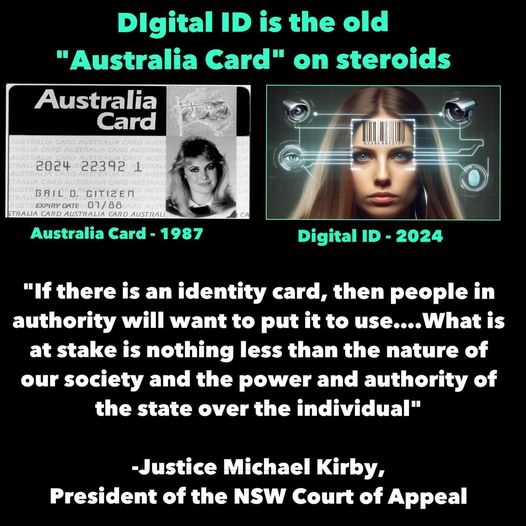From TOTT News
Australia’s digital identity scheme is almost set to expand nationally, after a landmark bill, first drafted more than three years ago, passes the Senate.
Australia’s Minister for Finance, Senator Katy Gallagher, has led the charge to move amendments to the Digital ID Bill 2024, and it has now passed the Senate.
The Digital ID Bill 2024, together with the Digital ID (Transitional and Consequential Provisions) Bill 2024, is expected to progress to the House of Representatives in the next sitting period.

These bills will provide individuals with what the government says is “…secure, convenient, voluntary and inclusive ways to verify their identity for use in online transactions with government and businesses.”
The Digital ID Bill 2024, if passed, will mean the following:
The legislation of a voluntary ‘Accreditation Scheme’ for Digital ID ‘service providers’ to “…ensure compliance with best practice privacy, security, proofing and authentication standards”.
The legal expansion of the Australian Government Digital ID System for use by the Commonwealth, state and territory governments, and eventually private sector organisations
Strengthen governance arrangements, including by establishing the Australian Competition and Consumer Commission as the Digital ID Regulator, and expanding the role of the Information Commissioner to regulate privacy protections for digital IDs.
Senator Malcolm Roberts, who is one of the few voices in opposition to this dystopian move, expressed concerns about how digital identification will shape the lives of Australians moving forward.
Both bills were initially referred to the Senate Economics Legislation Committee for inquiry, and on 28 February 2024, the committee recommended the Bills be passed.
There was a public consultation on an Exposure Draft of the Digital ID Bill in September and October 2023, where the Department of Finance accepted 113 submissions about the Digital ID Bill (out of thousands), of which 88 agreed to be published.
These submissions are available at 2023 Digital ID Bill and Rules submissions page.
Noting the passage of the legislation through Senate, Katy Gallagher said: “The Albanese Government is making it easier, simpler and more secure for you to access government services online.”
The Australian Banking Association (ABA) also reacted to the news, stating that a ‘voluntary’ nationwide Digital ID would be another important tool for banks to help protect the privacy of Australians.
They have been ready to introduce their schemes since 2022.
“This will be another layer of protection available to Australians in situations where they verify their identity online, including when they are interacting with a bank,” ABA chief executive Anna Bligh said.
Good ole’ Anna, wondered what happened to her after her reign of terror on Queensland.
Of course, those of us that know exactly where this is headed aren’t so pleased with the move, with our so-called ‘representatives’ happily passing for the modern equivalent of the controversial Australia Card.
But unlike the tens of thousands who protested that agenda in the 1970s/80s, the new-age digital identification trap has largely been introduced by stealth under the guise of ‘safety and security’.
Now, what was once called a ‘conspiracy theory’ by so many for even daring to be discussed, is reaching its final hurdles, on the heels of becoming reality. Big Brother is about to get an upgrade to his arsenal.
THE FINAL FIGHT
Last year, we revealed that this plan was finally set to move with the revelation of a National Digital ID Strategy, which is set to underpin the systems that will encompass Digital ID.
In 2018, we first warned of this rapid shift to Digital ID and licenses, and now we are at the final push of a new-age surveillance hell — where every movement is tracked and linked to a central database.
But there are still voices out there hoping to stop this in its tracks before it becomes law.
The Coalition remain opposed to the bill, and has argued many customers could be impeded by lack of access if they chose to stick with paper-based identity documents.
“We did not believe that the safeguards in the legislation were sufficiently strong, so that those Australians who chose not to have a digital ID were not going to be discriminated against,” the Opposition’s government services spokesperson Paul Fletcher told Sky News on Tuesday.

“It is important that there be legislative safeguards that people not be required to have it, that it’s something that you can use if you choose to, and certainly many people will choose to use it because they’ll see benefits in it,” said Fletcher during the interview.
“But we felt the safeguards were simply far too weak, and particularly this issue of whether you can be confident that you will continue to get service from government departments and agencies and from private sector businesses if you choose not to have a digital ID.”
Australians are also set to rally at the beginning of May against national digital identity, taking to the streets to voice their opposition and inform the public of the dangers of this shift.
We really are reaching ‘go time’, folks, after many years of warning against the Digital ID agenda.
If not stopped, the world we grew up in will look very different moving forward.



